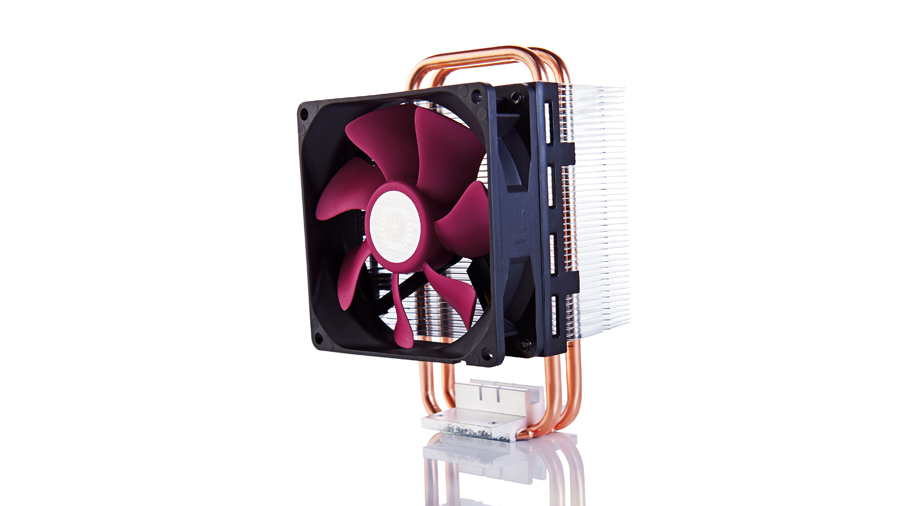TechRadar Verdict
Pros
- +
Good price
- +
Good at stock clocks
Cons
- -
Struggles with overclocked chips
- -
A bit noisy when pushed
Why you can trust TechRadar
Strapped for cash but still on the lookout for a well-built, third-party tower CPU cooler, that does a decent, quiet cooling job? Well, your choices up until now have been pretty limited.
Just recently, though, Cooler Master launched a couple of new budget tower coolers to widen that choice, one of which is the cool-sounding Blizzard T2.
The T2 is a compact tower cooler which uses an odd-looking dual looped heat pipe arrangement which - surprise, surprise - Cooler Master has patented as the 'Dual-Loop' design. It fits Intel's 1156, 1155 and 775 sockets as well as AMD's FM1, AM3+, AM3 and AM2.
It's a measure of how used to something you can get that the Blizzard's simple, Dual Loop cooling system makes it really stand out, simply due to how odd it looks - especially against the norm of having cooling pipes terminating just proud atop the cooling fin matrix.
By using this design, Cooler Master has got all four ends of the dual 0.6mm copper loops to terminate at the base of the cooler, with all the pipes being flattened to allow them to make direct contact with the top of your CPU.
Blade runner
The heat pipes pass through a 42-finned aluminium heat sink and are cooled by one of Cooler Master's own 92mm Blade Master, rifle-bearing fans. It spins at 2,200rpm at full tilt, when it becomes a bit noisy, but when the cooler is not being pushed the fan is relatively quiet.
After all the coolers that we've seen lately that need a plate fixing under the motherboard, it makes a nice change to report that the Blizzard T2 uses the standard Intel push pins. All you have to do is screw the mounting brackets holding the pins to the base of the cooler with the four wee screws provided.
For AMD owners, the cooler comes with an equally simple mounting bracket. You also get some thermal compound and a multi-lingual instruction pamphlet in the basic package.
To test the Blizzard T2, we mounted it on an Intel i7-3770K running at its default clock speed of 3.5GHz. We ran it for 20 minutes while the system was in idle, taking an average temperature of the four cores as measured by the Real Temp utility.
Then, to stress test it, we ran Prime 95's small FFTs test for 20 minutes to get the CPU running at 100 per cent, again using Real Temp to take an average of the four cores.
Then to really put the cooler through the mill, we overclocked the i7 to 4.5GHz and re-ran all the tests. Which is when the fun really started.
Benchmarks
CPU Idle performance
Core i7-3770K: Degrees C: Lower is better
COOLERMASTER BLIZARD T2: 25
ARCTIC COOLING FREEZER i30: 22
BE QUIET DARK ROCK2: 26
CPU Full-load performance
Core i7-3770K: Degrees C: Lower is better
COOLERMASTER BLIZARD T2: 73
ARCTIC COOLING FREEZER i30: 58
BE QUIET DARK ROCK2: 65
Peak to idle performance
Core i7-3770K: Time in seconds: Quicker is better
COOLERMASTER BLIZARD T2: 172
ARCTIC COOLING FREEZER i30: 119
BE QUIET DARK ROCK2: 127
At idle it was okay at 30°C, but as soon as we maxed the CPU to 100 per cent, the temperature of the cores climbed past the 100°C mark in less than a minute. It kept climbing to the 3770K's TJMax at 105°C before throttling back when we stopped the test - not a cooler for overclocking then.
But at £13 we're not talking about a crazy enthusiast-class cooler for the OC crowd, this is a bargain-priced CPU cooler that does the business at stock speeds. And in that it's impressive, if uninspiring.
